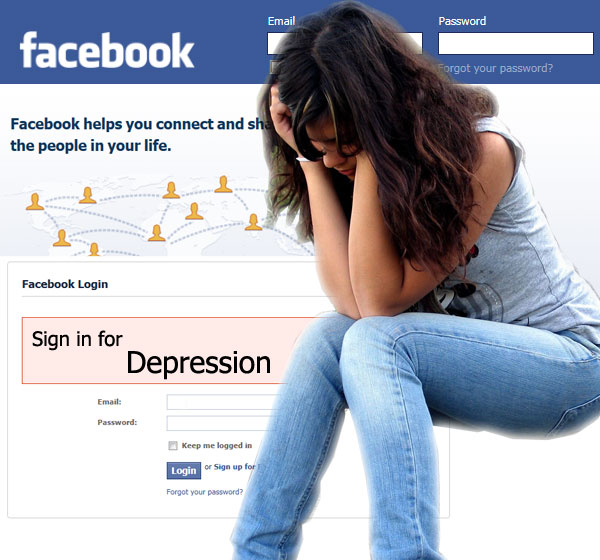Instead of going out on Friday after work, you’ve been going to the gym and going home early. Your coworkers invite you out for a drink, but it’s on a Wednesday and you use the weeknight as an excuse to bail even though the same reasoning would apply to the very people who invited you out. You’re kind of a drag lately, but nothing is really wrong — you’re just down for some unexplainable reason. A new scientific study suggests that social media may be the cause of your slump.
We’ve all been there: you decide to stay in and relax one weekend, but when absent-mindedly checking in on Twitter, Instagram, and Facebook, you’re hit with a barrage of pictures of your friends having what appears to be a phenomenal night out. Meanwhile, you just ordered delivery for one from the local sandwich shop that’s only a five-minute walk away. You opted to stay in that night, wanting to relax after an arduous week, but now you’re pretty down. Your life is objectively fine, but whether you like it or not, it’s now being compared to your friends’ Instagram stream. Scientists from the University of Innsbrook in Austria have found that — even if you don’t realize it — removing social media from your life may increase your level of happiness because you aren’t constantly comparing someone’s highlights to your lowlights.
Conducted by psychologists Christina Sagioglou and Tobias Greitemeyer, the first experiment consisted of 123 Facebook users. They were asked how much time they spent on Facebook, then were surveyed about their mood. The results found that the more time people spent on Facebook, the lower their mood would be.
The second experiment was performed with a total of 263 participants split into three groups. One group spent 20 minutes on Facebook before taking the mood survey, one spent 20 minutes on the internet but not on Facebook before the survey, and the other group didn’t spend any time on the internet and instead immediately took the survey. The results were the same as the first experiment: the Facebook users’ mood had dropped, while the others did not.
Analysis found that the Facebook users’ mood dropped because they felt they were wasting their time on a meaningless activity. As mentioned above, this could’ve been amplified because — as we all know — your friends generally post the exciting, happy moments of their lives on Facebook, rather than the moments where they’re, for instance, sitting around by themselves killing time on Facebook.
The study, of course, needs further analysis. However, it doesn’t take a scientist to figure out why you’d be a bit unhappy watching other people have fun on the weekend while you’re at home doing nothing of consequence. It just takes one to scientifically prove it.




